Before you kick off a long day on the farm, you most probably know that it's advised to check the pressure of your tractor tyres.
However, this quick check is often ignored due to a lack of time, although it can impact your work in ways you might not even be aware of.
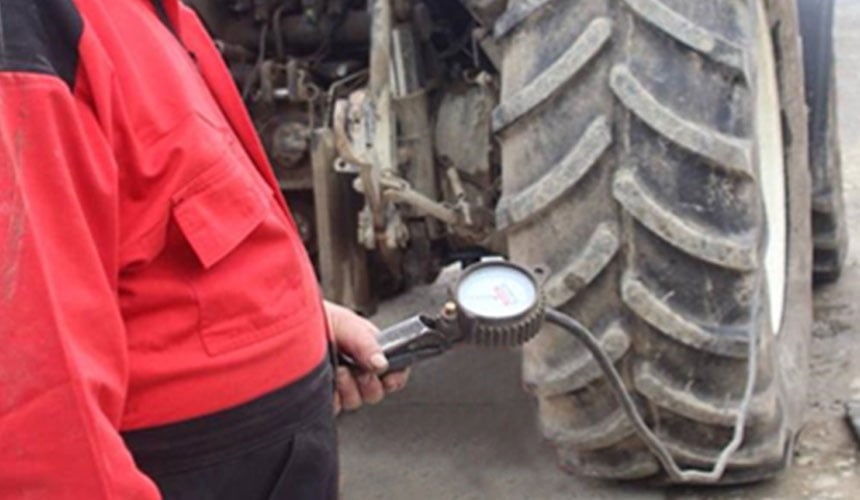 What can you do so that you don't have to spend time adjusting and checking your tyre pressure, without losing productivity and without harmful effects on your land?
What can you do so that you don't have to spend time adjusting and checking your tyre pressure, without losing productivity and without harmful effects on your land?
The pressure within an agricultural tyre is never constant, and can change depending on the load, the outside temperature, the degree of tyre wear, and its usage: heating up when rolling, type of soil, etc.
The tyre will bounce along the ground, which leads to abnormal wear to the shoulders and lugs as well as the structural materials heating up, causing the rubber components and nylon parts to separate.
So although reducing the pressure helps preserve the soil, if the pressure is TOO low it will cause premature wear to the tyre's internal structure.
The tyre will have less of a footprint in the soil, so the surface area that absorbs vibrations is reduced and compaction is greater. Over-inflating agricultural tyres also wears the tread and reduces handling, increasing the risk of accidents and coming off the road at high speeds.
| UNDER-INFLATION | OVER-INFLATION |
|---|---|
|
|
Getting the right tyre pressure is paramount if you want to avoid soil compaction.
Unfortunately, compaction begins as soon as you first drive your machine over your land, if your tyre pressure is wrong.
Compaction may just be superficial, when it's generally caused by incorrect tyre pressure (over-inflation) and can be remedied by regularly adjusting your tyre pressure between driving in the field and on the road.
Compaction can also go deeper, cwhich is due to incorrect tyre pressure (over-inflation) combined with an excessive axle load.
Excessive compaction of the soil will impede root development and water infiltration, resulting in 20-50% lower yields per hectare in some cases.
Over-inflation will also lead to rut formation in wet conditions, which means more work for you to restore the field. Furthermore, soil compaction generates more slip, leading to poor mud removal and as a result higher fuel costs.
Changing your tyre pressure by just 0.25 bar (from 1.25 bar to 1 bar) can reduce slip by 15-30%!
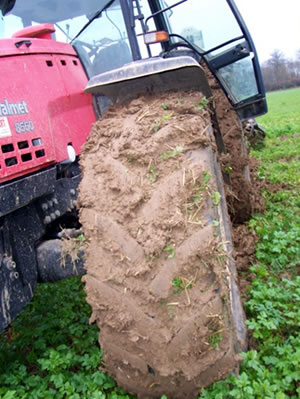
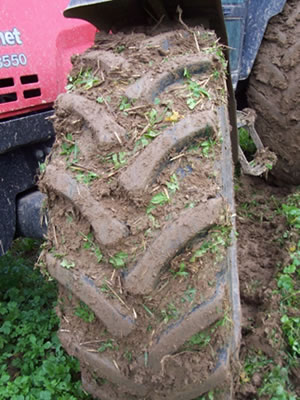
The above photos demonstrate the use of a tyre at different pressures in the same conditions. Tyre slip, before and after adjusting the pressure from 1.25 bar to 1 bar: A suitable pressure reduces slip.
Checking and adjusting tyre pressure might seem a hassle for busy farmers, but there are systems and tools out there that can make the task easier.
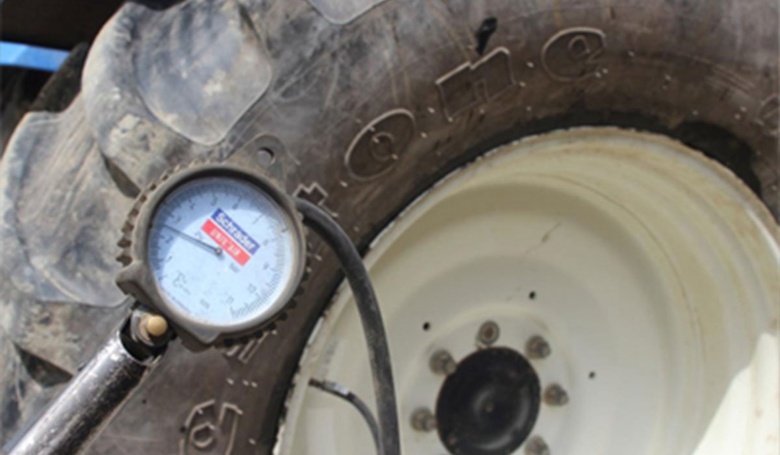
The fact that you'd no longer need to manage your tyre pressure is a real boon that will save you time throughout the entire day.
Tyres made to VF technology standards are capable of bearing heavier loads, and low-pressure tyres can be used regardless of speed.
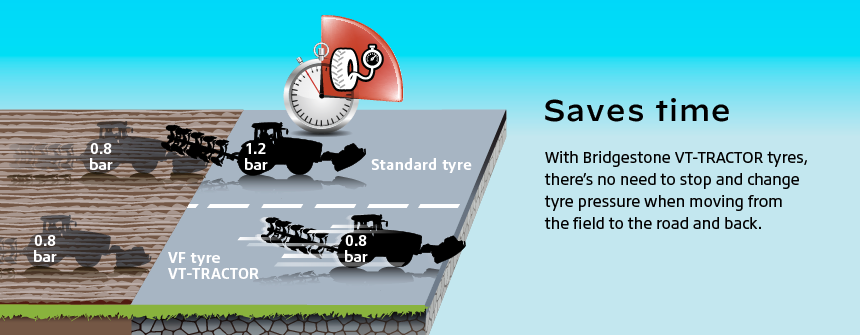
In order to prevent this extra load capacity from damaging the soil structure, the sidewalls have been developed to be extra flexible so that they increase the tyre's footprint, thereby allowing for the use of even lower pressures between 0.8 and 1.2 bar regardless of your forward speed.
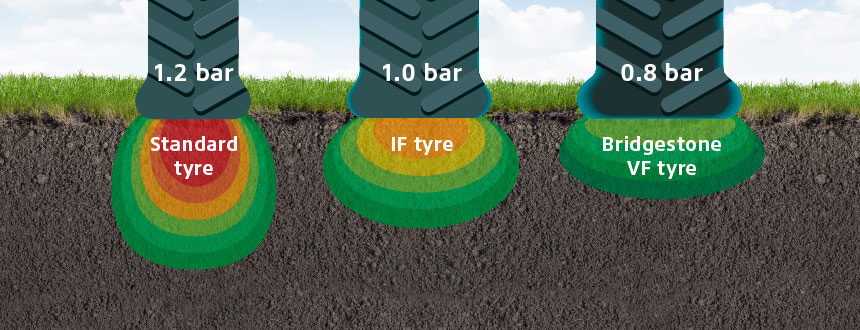
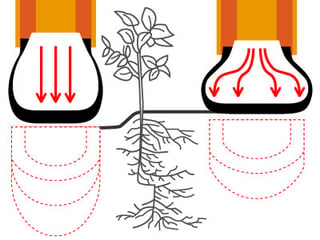
LARGE FOOTPRINT =
respect for the soil, less compaction and better yield!
Equipping your vehicle with wider, large diameter VF tyres such as the VT-Tractor, or even with twinned wheels and VF tyres, will increase your productivity and more than offset the initial expense of buying these new low-pressure tyres.
To learn more and boost your farm's profits, Bridgestone-Agriculture is offering you a free, detailed eBook that explains the essential role your agricultural tyres play in your productivity.
The most people who have read this article have also read the following articles, which are listed below in order of popularity:
This information is intended only to make you aware of the technical and functional aspects of agricultural tires and their use. It does not allow you to make a judgment or a definitive conclusion on a given problem. Only your agricultural tire expert is able to make a technical assessment and take a final decision, case by case.

BRIDGESTONE EUROPE NV/SA
AG Department
Leonardo Da Vincilaan 1
1930 Zaventem | Belgium
Our regional office:
Athena Drive, Tachbrook Park
Warwick CV34 6UX
United Kingdom